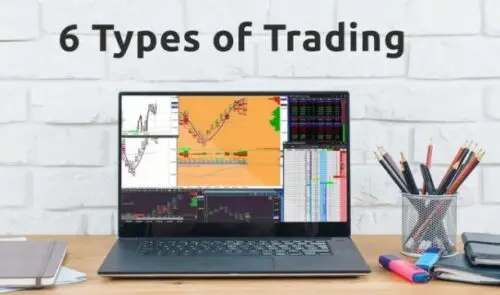Understanding the Trader
Definition of a trader
Trader – it is an individual or a company, which buys and sells financial instruments. It can be promotions, bonds, goods, currencies or other types of derivatives.
Trader's responsibilities
A trader's responsibilities include studying the markets, Following trends and executing trades for profit. They also analyze market data and apply various strategies to optimize their trading operations.
Types of traders
Intraday traders
Day traders execute many trades in a single trading day, in an effort to profit from short-term price changes.
Scalpers
Scalpers – These are traders, who conduct hundreds or even thousands of trades per day, in an effort to profit from extremely small price fluctuations.
Swing traders
Swing traders buy and hold assets for days or weeks, to take advantage of larger price fluctuations.
Position Traders
Position traders hold assets for months or even years, Focusing on long-term trends.
Skills and tools for a successful trader
Required Skills
Successful traders have in-depth knowledge of the financial markets, the ability to analyze complex data, Make quick decisions and manage risk.
Tools used
Traders use a variety of trading platforms and tools to conduct technical analysis, tracking trends and executing trades.
Advantages and disadvantages of being a trader
Benefits
Trading can provide a high level of financial independence, the ability to work from anywhere in the world and the potential for big earnings.
disadvantages
However, trading also involves risks, including the possibility of loss of investment, stress and the need for constant learning and adaptation to changing market conditions.
How to become a successful trader: Steps to Success
Education and training
Obtaining appropriate education and continuing education – Key Steps to Becoming a Successful Trader.
Practice & Strategy
Constant practice and the development of an effective trading strategy are also important elements of success in trading.
Risk & Emotion Management
Successful traders know how to manage their risks and emotions, to make rational trading decisions.
Conclusion
Traders play an important role in the financial world. They provide liquidity, help stabilize markets and even help businesses and governments with financing. Despite the risks and difficulties, Trading can be a high-paying and exciting career for those, who is willing to invest time and effort in learning and mastering this art.
Statistics on traders:
- According to 2023 of the year, about 10% of the population of Russia were engaged in trading in financial markets.
- Approximately 20% traders trade intraday.
- Most traders (about 80%) lose money in their first year of trading.
- Only about 5% traders consistently make a profit.
- The average age of a trader in Russia is 35 years.
- Estimated, about 15 millions of people in the world are engaged in trading in financial markets.
- In the U.S., approximately 1% population (about 3,2 million people) are actively engaged in trade.
- According to 2022 of the year, only 10% traders in the world remained profitable throughout the year.
- Approximately 1% traders in the world bring 50% of all profits from trading.
- The average length of a trader's career is 5 years. After this period, many move to other areas or continue to engage in trading on a part-time basis.
- Only about 4% women are engaged in trading at a professional level.
- 90% traders use technical analysis in your trading strategy.
- Most traders (60%) use mobile devices for trading.
- The average age of a trader in the world – 35 years. 40% traders are aged from 25 to 34 years.
- The average yield from trading on the stock exchange in the world is 10-15% in year, Although this indicator varies significantly depending on the market and trading strategy.
FAQ
- Who is a trader? Trader – it is a person or company, which is engaged in the purchase and sale of financial instruments, such as shares, bonds, Commodities and currencies.
- What types of traders are there? There are different types of traders, including day traders, scalpers, swing traders and position traders.
- What skills are required for a successful trader? Successful traders have in-depth knowledge of the financial markets, the ability to analyze complex data, Make quick decisions and manage risk.
- What are the advantages and disadvantages of being a trader? Trading can provide a high level of financial independence and the potential for big earnings, but also includes risks, including the possibility of loss of investment and stress.
- How to become a successful trader? To become a successful trader, you need to get the appropriate education, Constantly learn, practice and develop an effective trading strategy, as well as be able to manage risks and emotions.

